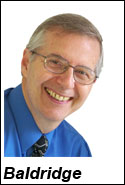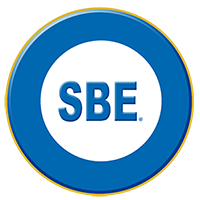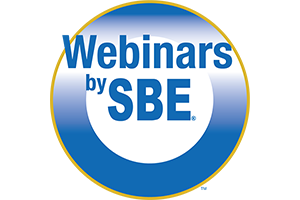Originally streamed January 15, 2015
- Overview
- Why You Should Attend
- Registration
- About Your Instructor
- SBE Recertification Credit
- Registration
- Bring This Presenter to Your Area
- Questions
Overview
The licensee of each AM, FM, TV or Class A TV broadcast station must designate a person to serve as the station’s chief operator (FCC Rules 73.1870). Depending on the type of facilities, there are varying requirements as to who this person may be and their responsibilities. This training covers the responsibilities of the designated chief operator and the duties necessary to fulfill this position.
This webinar will be a review of the duties to be performed by each station’s chief operator. Many chief operators come to this position with limited technical background; others are proficient with the technical aspects but are unfamiliar with all the requirements. Topics include:
- The station’s designation – who is qualified to fill this position.
- Administrative responsibilities: station logs, EAS logs, official station records
- Technical responsibilities: is the station operating by the rules?
- Accuracy responsibilities: do the records accurately reflect what happened?
- Communication requirements: who does the Chief Operator report to?
- Authentication requirements: Authenticate the station’s records – your name is on the line.
- Sample templates of required documents will be provided.
Why You Should Attend
SBE members often serve as the designated (or alternate) chief operator. Others are key support personnel for managerial staff. SBE members who understand the requirements of the chief operator will be an invaluable source for any broadcast facility.
Registration
SBE Members: $62
SBE MemberPlus Members: FREE
Non-Members: $92
About Your Instructor – Dennis Baldridge, CPBE, 8-VSB, AMD, DRB, CBNT
 Dennis Baldridge has been working in the field of broadcasting for over 30 years. He is a Senior Member of the SBE, holds an FCC Lifetime General License (formerly a First Class FCC License) and Amateur Radio Extra Class License (K0DB). Baldridge holds a Masters of Arts in Education (M.A.E.) and teaches science courses for Upper Iowa University. As owner of Baldridge Communications, LLC, he works as a contract engineer and has also authored several articles for Radio Guide.
Dennis Baldridge has been working in the field of broadcasting for over 30 years. He is a Senior Member of the SBE, holds an FCC Lifetime General License (formerly a First Class FCC License) and Amateur Radio Extra Class License (K0DB). Baldridge holds a Masters of Arts in Education (M.A.E.) and teaches science courses for Upper Iowa University. As owner of Baldridge Communications, LLC, he works as a contract engineer and has also authored several articles for Radio Guide.
Baldridge has been associated with the Alternate Inspection Program of the Wisconsin Broadcasters Association for the past four years. His focus has been helping stations verify substantial compliance to the FCC rules through the use of the FCC’s Self-Inspection Checklists.
SBE Recertification Credit
The completion of this webinar from Webinars by SBE qualifies for 1 credit, identified under Category I of the Recertification Schedule for SBE Certifications.
Bring this Presenter to Your Area
The Society of Broadcast Engineers is working with select industry professionals, including Dennis Baldridge, to be a part of the new SBE Technical Presenters Group. For a reasonable fee and travel expenses, groups such as state broadcasters associations, broadcasting companies, SBE chapters and others have the opportunity to include one of these speakers in their next engineering conference, or as a trainer for their engineering staff. Speakers from the SBE Technical Presenters Group are generally available to speak across the country. Click here for details on how to confirm Dennis Baldridge at your program.
More information about registering using the SBE MemberPlus benefit
All SBE webinars are included at no additional cost for members who renew or join using the SBE MemberPlus membership option. You get access to all archived SBE webinars and any new live webinars SBE presents for no extra cost. Members can renew and newcomers may join online at the SBE website using the SBE MemberPlus option.
Access to the SBE webinars through the SBE MemberPlus program is limited to the MemberPlus-purchaser only. You are not permitted to distribute, sell, copy, share, project or otherwise make the webinars available to any other individual or group without express written permission by the SBE.
Questions?
If you have questions regarding this webinar, contact Cathy Orosz via email or by phone at 317-846-9000.


